The ancient archives of Chinguetti
-
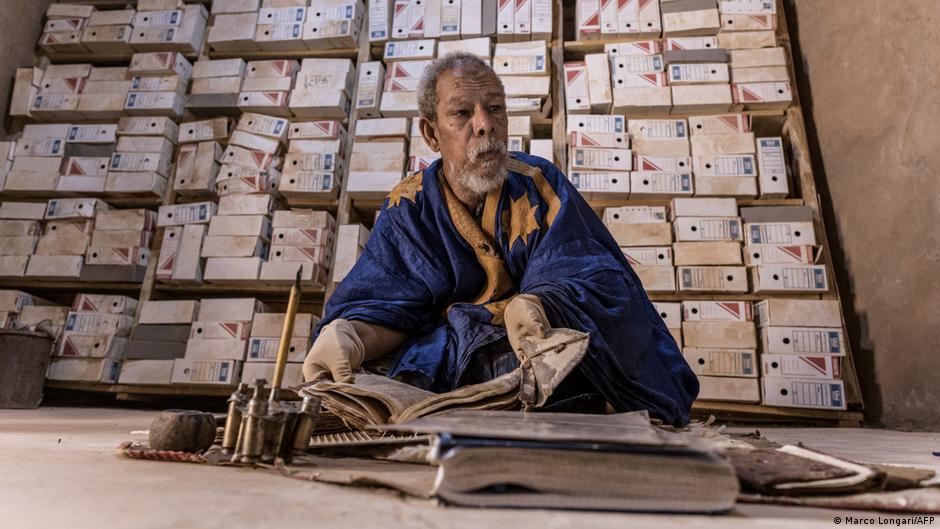
-
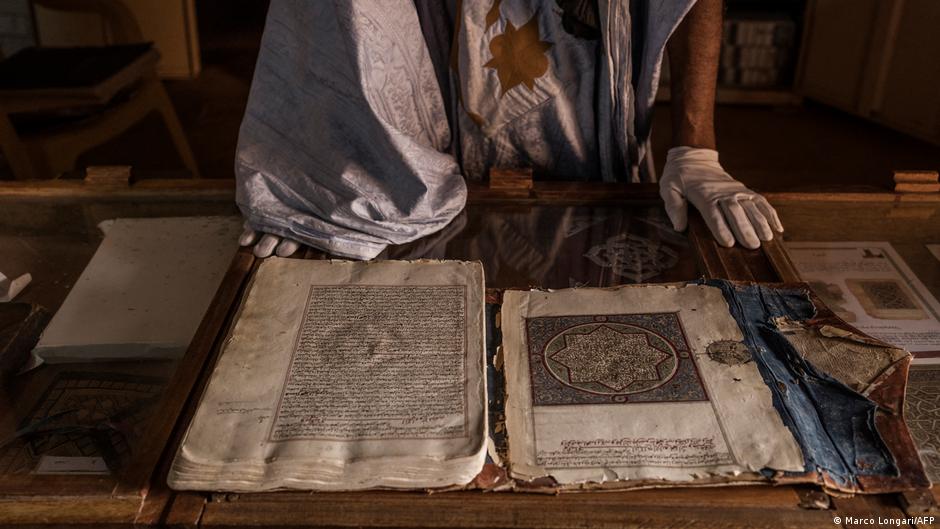
Memories saved on paper, parchment and leather: the ancient writings include texts on poetry and mathematics, astronomy, Islamic law and the Koran. Like a time capsule, they capture the culture and the progress made in their era. Most manuscripts are made of paper or parchment, but some texts are written on sheepskin. A mixture of charcoal and gum arabic served as ink -
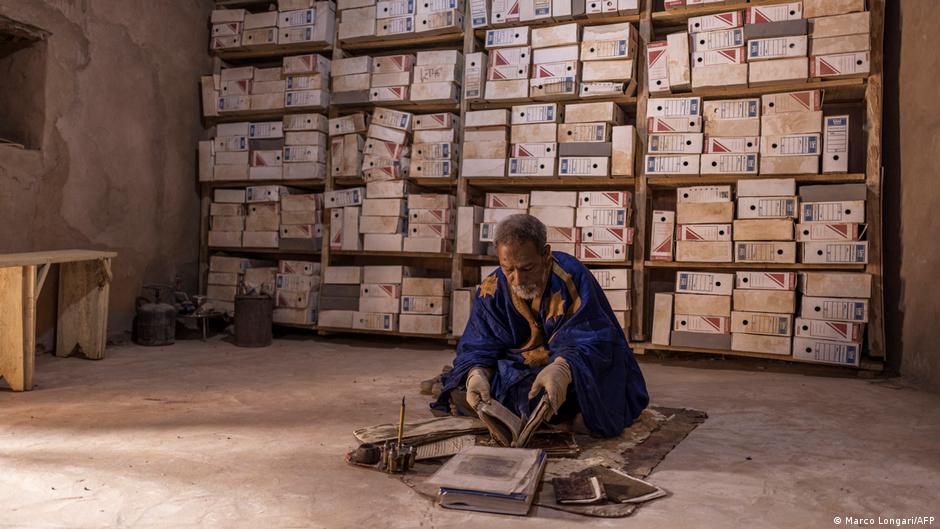
The memory of the world: local families have collected thousands of manuscripts for generations. Saif el-Islam al-Ahmed Mahmoud's family owns one of Chinguetti's 13 private libraries. Five of these libraries are open to the public. "We preserve the memory of the world that once passed through these streets," said Ahmed Mahmoud. He handles the old parchments only while wearing cotton gloves -
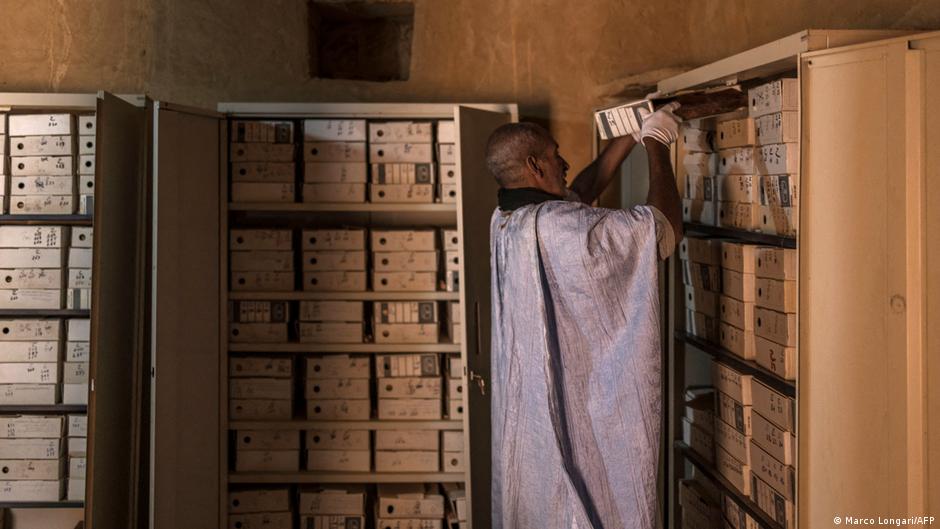
The writings of travellers and pilgrims: another library belongs to the family of Abdullah Habbot. He said family members have collected about 1,400 documents over generations. Some came from the pilgrimage to Mecca or other holy places. Some of his ancestors acquired texts from travellers who stopped in the city in the middle of the Sahara -
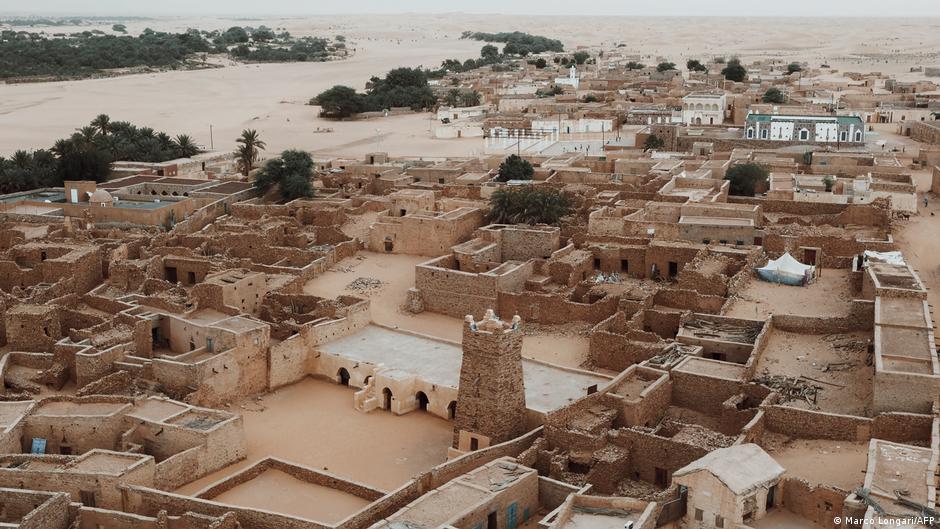
A centre of religion and trade: the reason some of the most important mediaeval manuscript libraries in West Africa originated in the city has to do with its location: Chinguetti was the meeting point of important trade routes that connected the western coasts of Africa with Mecca. For centuries, it was also the most important gathering place for pilgrims making their way to Mecca from the Maghreb -
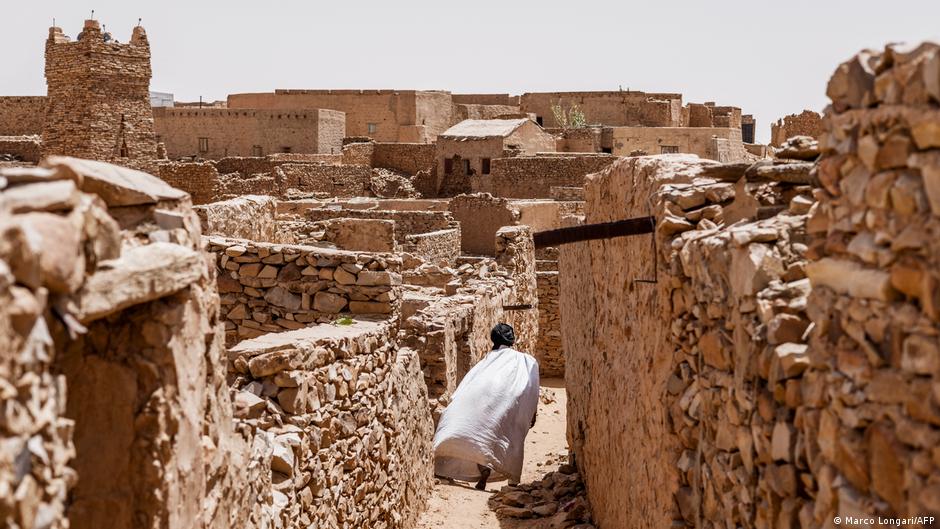
Silent city in the Sahara: between 4,000 and 5,000 people still live in houses made of clay and stone. There were about four times as many inhabitants in the 14th century, during Chinguetti's peak. The depopulation of the city accelerated in the 1970s with the conflict over Western Sahara, much of which is currently occupied by Morocco -
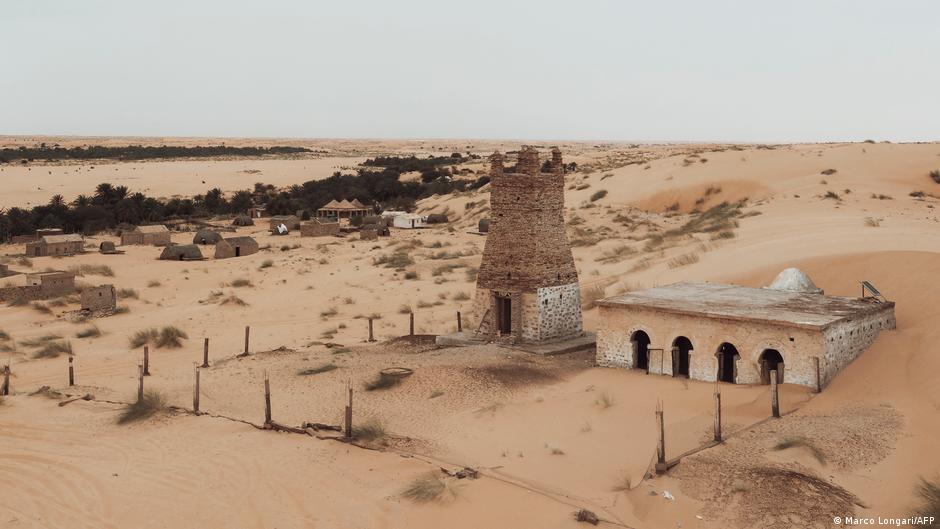
Under threat from sand and water: the old archives face a modern threat: climate change causes flash floods in winter, endangering the houses and the documents stored in them. At the same time, the Sahara is spreading and the buildings are becoming increasingly silted up – like this mosque -
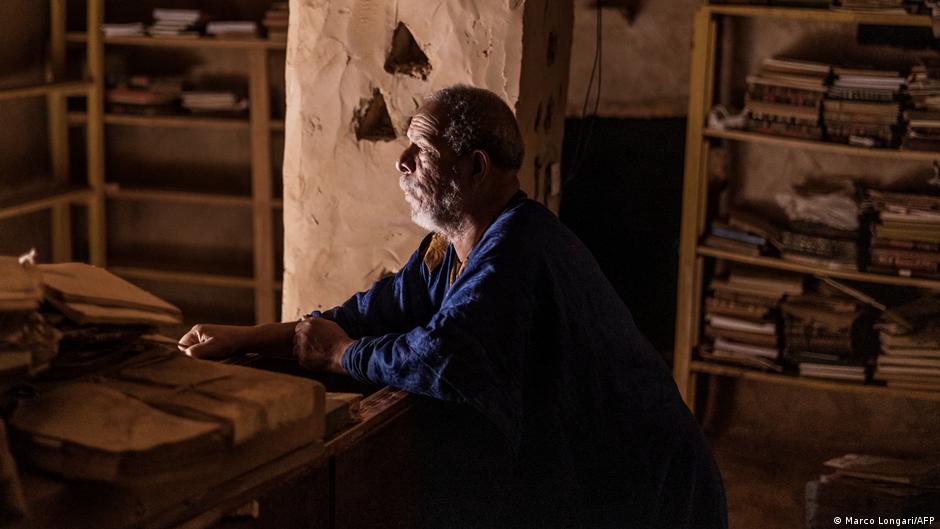
What would the world be without poetry? Saif el-Islam al-Ahmed Mahmoud is afraid for his family's historical collection. "If the libraries collapse, ancient memories will be erased," he said. Then we would all be poorer since, as he put it, "What would the world be without poetry?"
https://qantara.stage.universum.com/en/node/42470
Link
To all image galleries